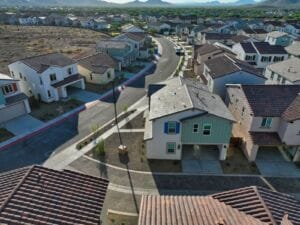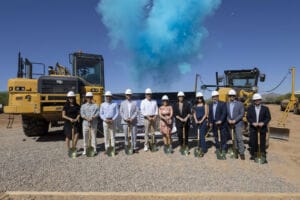
Cecilia Rosales, MD, MS, assistant dean of the University of Arizona Mel and Enid Zuckerman College of Public Health — Phoenix, was appointed to the Academic Technical Council (ATC) of the Binational Border Health Network (BBHN). The network is comprised of experts from 10 border states to improve response to the challenges posed by public health conditions on the U.S.-México Border.
Funded by a $250,000, one-year grant from the National Council of Science and Technology (CONACYT) in Mexico, it is the only funded network focused on the U.S.-México border region. The network’s frame of reference will align and follow the priorities established in the Healthy Border 2020 Initiative, to address five public health priorities of binational concern, including chronic and degenerative diseases, infectious diseases, maternal and child health, mental health and addiction, and injury prevention.
Gudelia Rangel, PhD, executive secretary for the Mexico Section of the U.S.-México Border Health Commission, said Dr. Rosales was invited to be part of the initial proposal-writing team and a member of the Academic Technical Council because of her prestigious and extensive experience in the field of border health.
“In addition, because of the academic nature of this network, we identified and invited individuals, such as Dr. Rosales, and institutions, such as the UA Mel and Enid Zuckerman College of Public Health, whose research, teaching and service mission and focus includes the border region, to be a part of this grant.”
Dr. Rosales has worked in the health arena for more than 20 years and in public health more than 15 years. She joined the UA Zuckerman College of Public Health in 2005, after serving five years as director of the Office of Border Health for the Arizona Department of Health Services. Dr. Rosales has expertise in program development and implementation, public health administration, policy and health disparities research in the Southwest.
Dr. Rosales uniquely contributes to the body of knowledge about Hispanic, border and bi-national health and conducts community-based participatory research in the Southwest. She served on the U.S.-México Border Health Commission, the Arizona-Mexico Commission, the Border Governors and the state health departments in Arizona and Sonora. She understands the context of how the public health infrastructure can be strengthened at the local, state, national and binational levels to eliminate health disparities.




